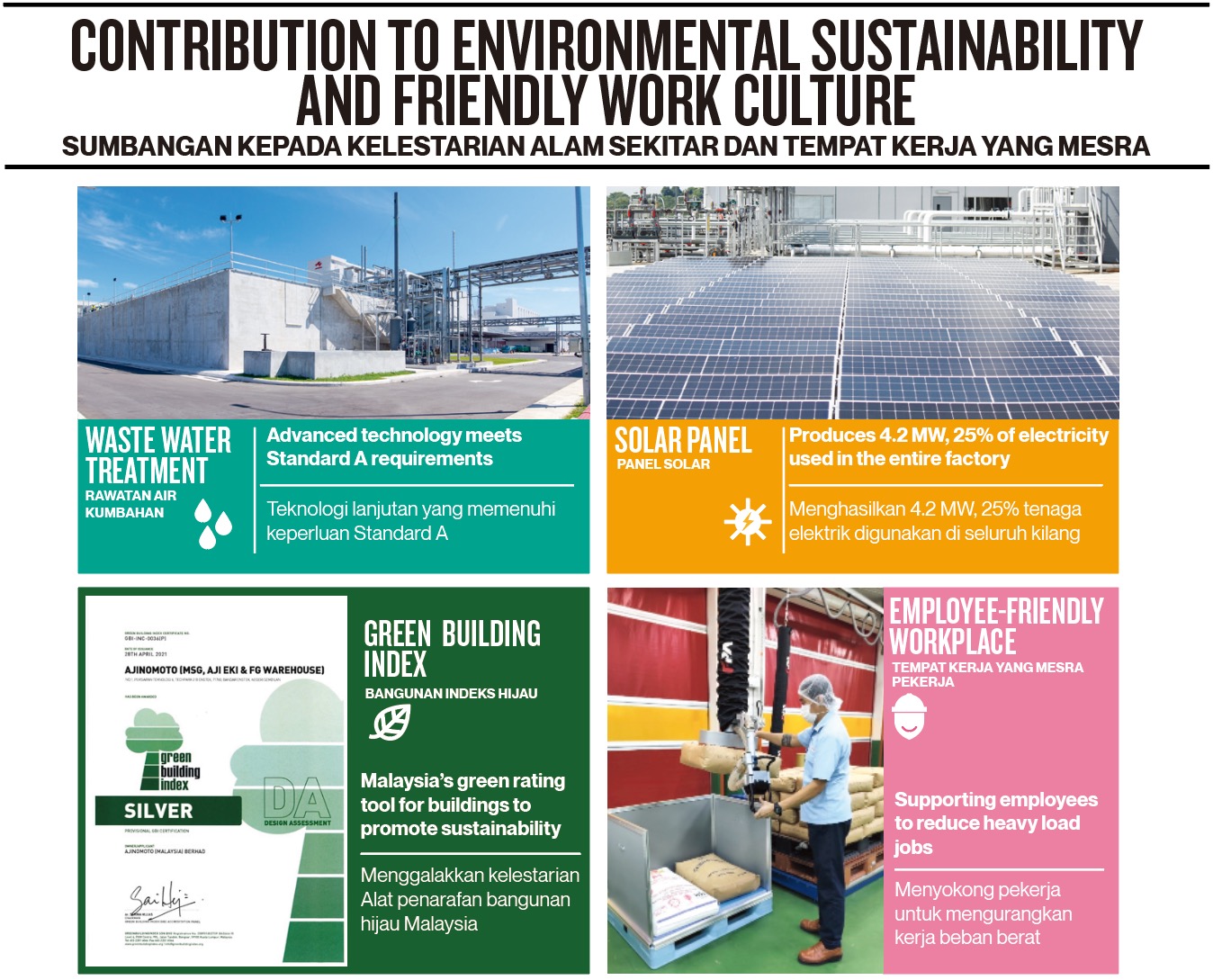Along with society
New Halal Plant Contributes to the Environment and Local Community

AJINOMOTO (MALAYSIA) BERHAD (“AMB”) opened a new plant in techpark@enstek (Bandar Enstek, Negeri Sembilan, Malaysia), celebrating its 60th anniversary in 2022. Introducing advanced technology to this plant led to significant progress in solving various problems in food production.
Improved Productivity and Comfortable Work Environments Through Automation and Digitalization

AMB was one of the first Japanese companies to expand into Malaysia. The company has provided locally produced seasonings in Malaysia and other countries for many years. AMB focuses on local production, committed to encouraging local employment and the distribution of safe, reliable, high-quality products.
AMB completed the construction of a new plant in December 2022. This plant is to serve as an environmentally-friendly “smart factory” with high productivity. The area of the plant covers approximately 46 acres (~188,000 square meters). Here, automation and digitalization using advanced technology improved plant productivity and created a comfortable working environment. Duli Yang Maha Mulia Tuanku Muhriz ibni Almarhum Tuanku Munawir, Yang Di-Pertuan Besar Negeri Sembilan attended the opening ceremony along with the Ambassador of Japan to Malaysia Katsuhiko Takahashi. Company President & CEO Taro Fujie and executives from AMB were also in attendance.
New Plant to Accommodate Food Diversity with Halal Certification

More than 60% of the population in Malaysia is Muslim. Islamic law requires people to live by a set of rules called halal. Daily meals must be halal. Access to a stable supply of JAKIM*1 halal-certified foods is an important issue faced in the country.
- *1Abbreviation for the Department of Islamic Development of the Malaysian Federal Government. This term refers to the Malaysian government's halal certification body.
AMB has received halal certification since 1965 and was awarded the Best Malaysian Halal Certification Holder by JAKIM in 2021. The new plant also manufactures halal-certified food products. Halal certification of the plant strengthens exports from Malaysia to the global halal market, in which demand is expected to grow increasingly in the future.。
Major Approach to Solving Environmental Issues

AMB is committed to creating environmentally friendly products. AMB will continue their efforts to solve environmental issues at the new plant. Wastewater from factories is an unavoidable byproduct of the manufacturing process. The plant treats this wastewater in wastewater plants fixed with the latest technology to meet the requirements of the DOE Standard A*2, the most strict wastewater quality standards in Malaysia. AMB also installed 7,700 solar panels on the roof of the new plant to generate electricity from renewable energy sources, reducing total fuel based electricity consumption by 25%. These solar panels are expected to greatly reduce CO2 emissions. The plant received Green Building Index (GBI) certification in Malaysia as a result of this initiative.
The plant also automated nearly all production operations with the installation of automatic weighing systems and automatic packaging machines in the manufacturing process. Through labor-saving, the plant creates a gender- and age-neutral working environment.
AMB will continue to make products that address food diversity as they contribute to solving environmental issues and developing local communities.
- *2Department of Environment (similar to the Japanese Ministry of the Environment)
